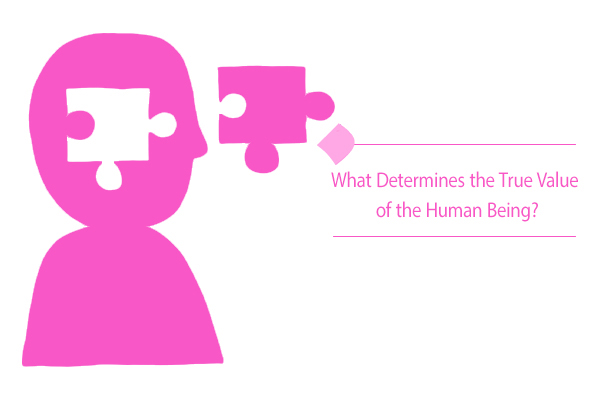What Does Our True Value Lie in?
You Sold It Short! We may have heard these words about ourselves and others in different situations. Realizing that we have lost something easily without knowing its true value is a terrible feeling. Most of the time, we cannot even make up for that loss.
Basically, human laws are regulated in a way that if you break an agreement, you must pay compensation. These strict laws push us to ask about the cost and value of any deal before paying money. Ultimately, we make the decision which is in our best interest. So why do we easily overlook this precious asset when it comes to our own value?
In this article, we will examine the right way of evaluating our life and how we can find the true value of ourselves.

Beware of the Value
As we live in this material world where senses surround us, we have got used to its rules and needs. We have spent most of our lives on the matters and pleasures that play no significant role in our eternal life. Since this materialist view dominates our minds, we evaluate the world around us based on that; therefore, we have more desire and tendency towards material and tangible things.
We spend weeks learning an art or a foreign language, but if we spend an hour or a day getting to know our ‘self,’ we have the fear of falling behind with our other tasks. All this is the result of wrong evaluation.
The Value of Everything Is Subject to Our Viewpoint
As it was stated before, our life is made up of our thoughts, behaviors, decisions, and relationships. But what determines the level and type of these thoughts and relationships?
In fact, we evaluate the cost of different matters according to the value that life has in our mind, and then we decide how to invest our money and emotions based on that evaluation. For example, if our child or family member suffers from a serious illness, we feel extremely upset. We spend days and nights looking after her and are willing to pay any price to see her healthy and comfortable again. But have you ever heard of somebody doing these things for a plant? If she does so, she could be called an idiot.
This is the rule that applies to our entire life. All our relations with ourselves and others are dependent on the same viewpoint and the emotions we have for ourselves, our life, and others. The broader this viewpoint, the more emotion we show and the greater our love will be, and as a result, we invest more in it.
What Is Our Value?
The value that we set for ourselves depends on both our knowledge about our ‘self,’ and how we have defined it. The ‘essence’ of human beings has occupied the mind of people and philosophers since the earliest times. Some people like Plato[1] believe that the non-material aspect of human beings makes up their essence while philosophers like Hobbes[2] and Marx[3] do not see much difference between humans and animals[4].
Even in our times, there are many people who insist on reducing human dignity to the level of a talking animal (Homo Sapiens), and introducing themselves as an advanced breed of monkeys. However, all these people have one point in common: we have to know our ‘self’ well to be able to adjust our relationships, beliefs, and behaviors on that basis.
To know whether we are aware of our value as a human being or not, we should see which category our definition of the ‘self’ falls into. Do we define ourselves at the level of a plant? A plant that has a gender, grows, reproduces, and needs food and water? Or do we define ourselves at the level of an animal? An animal that has a family, works for the well-being of his family, serves other animals, has social life, works, and moves up the social hierarchy.
Even if we firmly say, “No, I am a human being,” but in reality, all our concern is why we are not ten centimeters taller or our muscles are not big enough, we have defined ourselves at the level of a plant. Or if we define ourselves as a doctor, engineer, mother, or father; or we are upset because we have not married such and such a person, we have not valued ourselves more than an animal.
Our knowledge of ourselves is complete when we know the human dimension of our existence and define the ‘self’ based on that. Our value is the value of a human being who also has vegetative and animal dimensions. However, our thoughts, behaviors, relationships, and decisions are all defined based on our true self and the human dimension of our being. We should never degrade our decisions and interactions to the level of a plant or an animal.
To see more on the Dimensions of Human Existence, see “An Introduction to the Dimensions of Human Existence.”
Your Heart, Your Value
Regarding what was stated about value, you may be curious to know what value you have given to yourself. To understand this, we should look at the type and level of our concerns. In fact, the way we spend our lives determines the real value that we set for our self.
We should look at where our heart and thoughts travel to. Do they desire the expensive car that just passed us, last night’s party, or the important position we are going to hold tomorrow? Where we place our heart determines our value.
References
[1]. Platonic Epistemology
[2]. Hobbes was a determinist and made no fundamental distinction between humans and animals.
[3]. Marx believed that humans are political animals in the true sense of the word
[4]. Trigg, Roger. Ideas of Human Nature.

